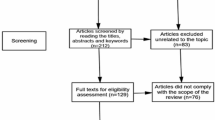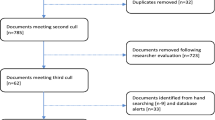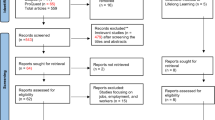Abstract
During the last ten years research papers of good quality on Latin American education have risen from almost nothing to more than 100 a year, and the original three or four research centres have multiplied ten times. Diffusion has improved through regional distribution of journals and through opportunities for personal exchange, though this is handicapped by salary levels and poor communications. Networks, of which ten years ago there were only five, are expanding, and may be identified under sponsoring organizations or by topics. Many reasons for the high level of activity may be advanced, which include the key role played by journals, pay off from previous graduate training, facilities such as the use of computers, higher standards of librarianship and new sources of funding. Knowledge from previous research is also being put to use, and improvement programs are receiving support from research, but the danger exists that research may be transformed into an elite exercise.
Résumé
Au cours de ces dix dernières années, les articles sérieux concernant la recherche dans le domaine de l'éducation en Amérique latine, sont passés d'un nombre infime à une quantité depassant la centaine chaque année, et les trois ou quatre centres de recherche qui existaient à l'origine se sont multipliés par dix. La diffusion s'est améliorée grâce à la distribution régionale des publications spécialisées, et aux opportunités d'échanges personnels, bien que le handicap des bas salaires et des communications difficiles soit considérable. Les réseaux d'information qui, il y a dix ans, n'étaient qu'au nombre de cinq, se développent et peuvent être classés d'après les organisations qui les prennent en charge ou d'après leurs sujets d'enquête. On peut avancer de nombreuses suggestions pour expliquer ce haut niveau d'activité, entre autres le rôle-clef joué par les publications spécialisées, l'amortissement de la formation antérieure des enseignants, des facilités telles que l'usage des ordinateurs, un niveau plus élevé des bibliothécaires, et de nouvelles sources d'investissement. Les expériences de la recherche précédente sont aussi utilisées et les programmes d'amélioration reçoivent une aide de la recherche, mais le danger subsiste que cette recherche soit transformée en un exercice d'entraînement de l'élite.
Zusammenfassung
Während des letzten Jahrzehnts ist die Anzahl von Forschungsarbeiten guter Qualität über das Bildungswesen in Lateinamerika fast aus dem Nichts auf über 100 pro Jahr gestiegen, und die ursprünglich drei oder vier Forschungszentren haben sich verzehnfacht. Die Verbreitung hat sich durch regional zirkulierende Zeitschriften und durch Gelegenheiten zu persönlichem Austausch verbessert, obwohl dieser durch noch niedrige Gehälter und unzureichende Kommunikationsmittel behindert Netzwerke — vor 10 Jahren gab es nur fünf — haben sich vermehrt und können nach Förderorganisationen oder nach Themen klassifiziert werden. Für die Vielfalt der jetzigen Aktivitäten können verschiedene Gründe angeführt werden, u.a. die Schlüsselrolle der Zeitschriften, die Früchte früherer Universitätsausbildung, neue Möglichkeiten wie Gebrauch von Computern, höheres Bibliothekarsniveau und neue Finanzierungsquellen. Ausserdem werden durch frühere Forschung erworbene Kenntnisse angewandt und Verbesserungsprogramme durch Forschung unterstützt. Allerdings besteht die Gefahr, dass die Forschung einen elitären Charakter annehmen könnte.
Similar content being viewed by others
Rights and permissions
About this article
Cite this article
Schiefelbein, E. Educational research networks in Latin America. Int Rev Educ 24, 483–500 (1978). https://doi.org/10.1007/BF00615695
Published:
Issue Date:
DOI: https://doi.org/10.1007/BF00615695




